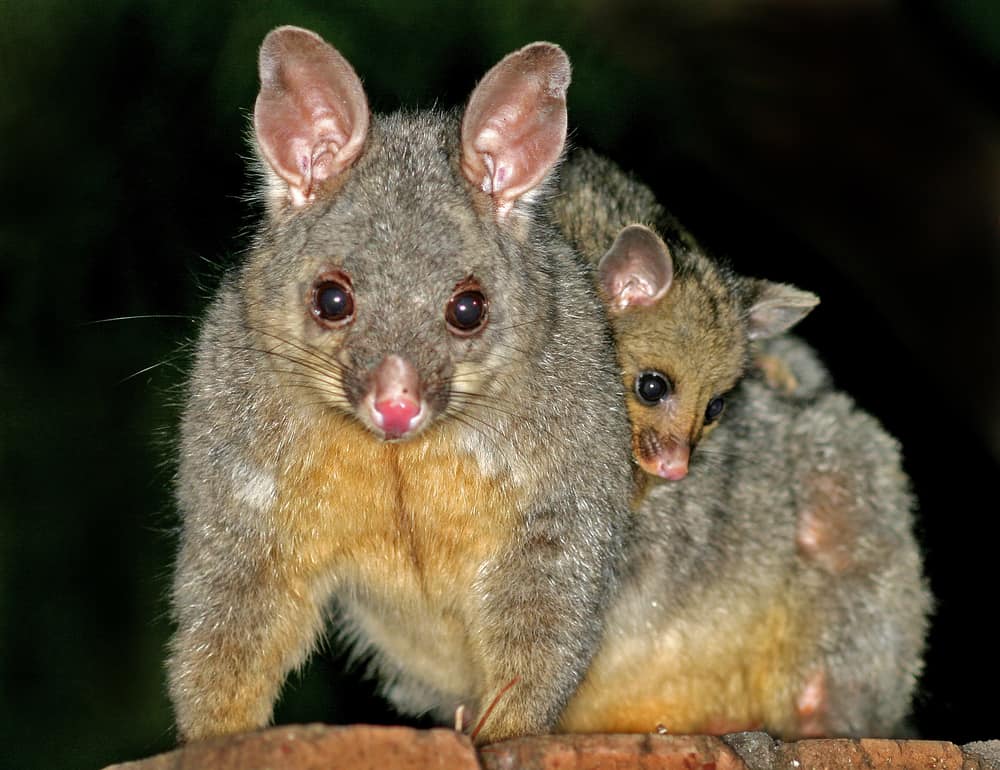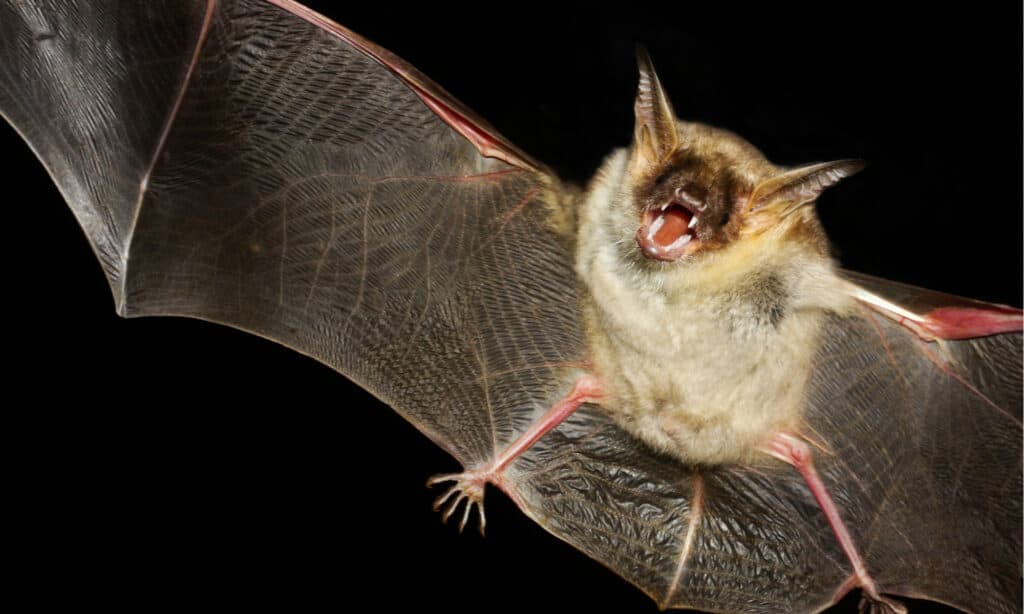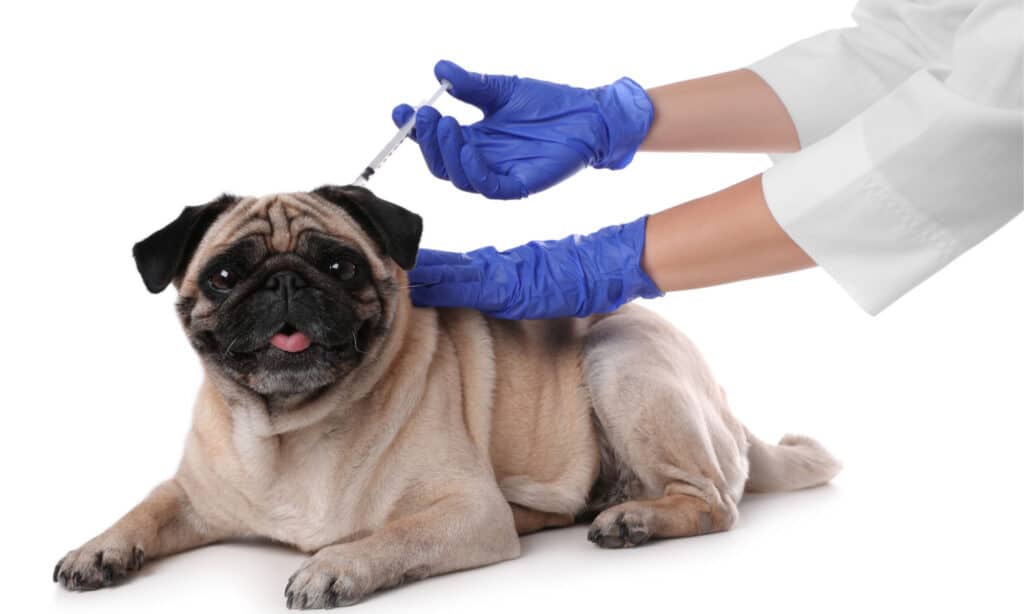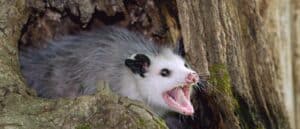When people think of rabies, they usually envision something along the lines of the infamous scene from the movie To Kill a Mockingbird. In this scene, a rabid dog bites and snarls at the air as it leaps around in a diseased frenzy. This image understandably inspires fear. But what exactly is rabies? Can possums have rabies or are these common backyard pests exempt? Find out below!
What is Rabies?
Rabies is a fatal viral disease that attacks and damages the central nervous system. It eventually moves to the brain, causing death. Rabies is transmitted through infected saliva or tissue, usually via a bite or scratch. The good news is, rabies is entirely preventable with vaccines for both humans and animals. However, once infection sets in, it is virtually impossible to treat. For this reason, rabies remains a genuine concern for people around the world.
Immediate treatment is crucial for anyone who thinks they are at risk of infection. This involves a series of shots, which are usually effective at stopping the infection from taking hold. It is also vital to report animals that may be carrying the rabies virus.
The virus causing rabies belongs to the genus Lyssavirus. This genus contains seven related viral strains called genotypes. Genotype 1 is the rabies virus as people usually think of it. The other six genotypes are forms of the virus related to rabies yet distinct. Different species of animals may be more or less susceptible to different genotypes.
Can Possums Have Rabies?

Contrary to popular belief, possums and opossums rarely if ever carry rabies.
©iStock.com/randimal
Possums rarely if ever have rabies. Although it’s technically possible for them to carry the disease, scientists hypothesize that their unusually low body temperature makes it difficult for the rabies virus to survive. This goes for both Australian possums and their relatives, opossums, in the Americas.
In Australia, rabies in its classic form (genotype 1) is nonexistent. However, a related strain, genotype 7, is present on the continent and surrounding islands. Scientists call this genotype “Australian bat lyssavirus” (ABLV). It causes similar symptoms to classic rabies. As its name suggests, its carriers are Australian bats. All bat species are susceptible to this virus; however, flying foxes are especially vulnerable. Possums on the Australian continent do not currently carry this genotype.
Can Possums Carry Other Diseases?

Possum rarely carry rabies, but they do carry other harmful diseases
©Bryce McQuillan, CC BY-SA 2.0, via Wikimedia Commons – License
Though possums rarely carry rabies, they are potential carriers for a number of other diseases. Though this is not an exhaustive list, it includes the following:
Lyme Disease
Two types of bacteria cause Lyme disease: Borrelia burgdorferi and Borrelia mayonii. Though blacklegged ticks are the usual transmitters, possums are also at fault. Symptoms include fever, headache, fatigue, facial paralysis, arthritis, and the erythema migrans rash.
Leptospirosis
Bacteria from the genus Leptospira cause this rare disease. Its many possible symptoms include fever, headache, chills, aches and pains, vomiting, and jaundice. Eventually, it may result in kidney or liver failure or meningitis.
Rickettsia
Bacteria from the genus Rickettsia cause this serious disease. Symptoms include fever, rash, scabs over the bite, and blood vessel or lymph node inflammation.
Mycobacteriosis
Bacteria from the mycobacteriosis group cause this type of illness. Symptoms include coughing, weakness or fatigue, appetite and weight loss, fever, chills, and night sweats.
Cryptosporidiosis
The parasite cryptosporidium causes this disease. Symptoms include watery diarrhea, stomach cramps, dehydration, nausea and vomiting, fever, and weight loss.
Are Possums Dangerous?

Possums are shy and will only attack in self-defence.
©Stuart Elflett/Shutterstock.com
Possums are shy, elusive creatures by nature. They much prefer to stay out of the limelight and avoid human contact. Though humans may catch glimpses of them from time to time, contact is usually limited. The possum’s nocturnal proclivity helps it remain out of sight.
A possum who feels threatened first attempts to escape the situation without incident. If this proves impossible, it bares its teeth and snarls to frighten its attacker. If this doesn’t work, it resorts to biting or scratching in self-defence. While possum attacks are typically not fatal to humans, some possums do carry harmful diseases other than rabies. Bitten or scratched humans should seek medical attention to prevent the onset of disease.
Most incidences of contact between possums and humans occur when the former sneaks into houses or garages in search of a home. In this case, it is vital to remember that possums are protected in Australia. Humans can’t legally remove them from their property without a special permit. Licensed relocators are able to step in when necessary and rehome the offending possum.
What Other Species Carry Rabies?

Bats are one of the animals that carry rabies
©iStock.com/Geza Farkas
Though Australian possums rarely if ever contract rabies, many other species in the world are susceptible to the disease. In the United States, rabies most commonly affects the following wild animals: raccoons, foxes, skunks, and bats. Opossums, like their Australasian cousins, rarely carry the disease.
Unfortunately, dogs and cats are the primary carriers among domesticated species, making preventative vaccines essential. Perhaps surprisingly, these beloved pets share this dubious distinction with domesticated cattle. In developing countries, feral dogs remain a source of fear due to widespread rabies among their ranks and ineffective population control.
Essentially, any warm-blooded mammal is susceptible to carrying or contracting rabies. For this reason, humans must exercise caution when approaching wildlife. Even if they do not exhibit classic symptoms, they may be carriers.
Can Humans Get Rabies?
Unfortunately, it is possible for humans to contract rabies. Approximately 59,000 people worldwide die from rabies each year, most in Africa and Asia. In the United States, reported cases typically do not exceed 1 to 3 per year. Preventative vaccines are available, though doctors typically only administer them to people at high risk of exposure to the disease, like veterinarians and animal control workers. Most people only receive the rabies vaccine after possible exposure to the virus.
Symptoms of a Rabies Infection

Vaccines make rabies totally preventable in both animals and humans.
©iStock.com/Liudmila Chernetska
There are ways to detect a rabies infection that has taken hold. In animals, the symptoms include:
- Aggressive or fearful behaviour
- Drooling
- Difficulty swallowing
- Weakness
- Ataxia (reduced muscle control resulting in clumsiness)
- Self-mutilation
- Seizures
- Paralysis
In humans, the symptoms of rabies may vary somewhat from those of other animals. Symptoms include:
- Fever
- Headache
- Nausea and vomiting
- Anxiety or confusion
- Agitation or hyperactivity
- Unusual salivation or difficulty swallowing
- Fear of ingesting water
- Fear of drafts or breezes
- Hallucinations and insomnia
- Partial paralysis
Possums in Australia are capable of contracting rabies, though this is extremely unlikely due to the low incidence of rabies on the continent. However, humans should still be cautious when approaching these or any other wild animals.
Up Next
The photo featured at the top of this post is © Timothy Christianto/Shutterstock.com
Sources
- Wikipedia, Available here: https://en.wikipedia.org/wiki/Rabies
- CDC, Available here: https://www.cdc.gov/vitalsigns/rabies/pdf/vs-0612-wildlife-rabies-h.pdf
Thank you for reading! Have some feedback for us? Contact the AZ Animals editorial team.






